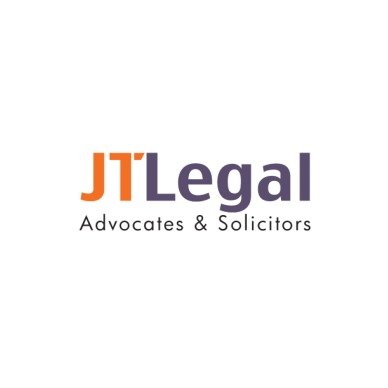Best Fintech Lawyers in Marina
Share your needs with us, get contacted by law firms.
Free. Takes 2 min.
List of the best lawyers in Marina, Singapore
About Fintech Law in Marina, Singapore:
The field of Fintech, or financial technology, in Marina, Singapore refers to the evolving intersection of financial services and technology. It includes various emerging sub-sectors like digital payments, blockchain technology, and robo-advisors. As such, the law surrounding this innovative industry is dynamic and requires specialized knowledge. In Singapore, the Monetary Authority of Singapore (MAS) plays a crucial role in regulating and supervising Fintech activities.
Why You May Need a Lawyer:
In this rapidly evolving industry, it can be challenging to keep up with constantly changing regulations. Whether you're launching a Fintech startup, planning on investing in Fintech companies, or developing Fintech solutions, legal advice can be invaluable. Lawyers specializing in Fintech law can help you navigate regulatory compliance, licensing applications, data protection laws, and intellectual property rights, among others.
Local Laws Overview:
The local laws regulating Fintech in Marina, Singapore, primarily focus on consumer protection, data security, cyberspace laws, and financial regulations. These laws govern various aspects like digital payments, data protection, online trading, cybersecurity, and crowd-funding platforms. The MAS has been proactive in providing organizations with guidelines and regulations to promote innovation while maintaining a secure and robust financial system.
Frequently Asked Questions:
What is Fintech and why is it important?
Fintech, short for financial technology, refers to the use of technology to improve and automate financial services and processes. It's important because it brings about greater efficiency in the financial sector, promotes financial inclusion, and offers improved customer experiences.
What are some common Fintech products or services?
Common Fintech products and services include mobile payment apps, peer-to-peer lending platforms, robo-advisors for investment, and digital-only banks.
Where can I learn more about Fintech regulations in Singapore?
The Monetary Authority of Singapore (MAS) website offers comprehensive information on regulations, guidelines, and licensing for Fintech services.
Are there any specific laws for cryptocurrency in Singapore?
Yes, Singapore has specific regulations governing cryptocurrencies and related activities. Details can be found in the Payment Services Act of Singapore.
What role does MAS play in regulating Fintech in Singapore?
The MAS is responsible for all financial institution oversight in Singapore, including Fintech. MAS ensures a secure and robust financial system while promoting innovative financial services and stability.
Additional Resources:
For additional resources, you may refer to 'Fintech Regulatory Sandbox Guidelines' by MAS, which provides guidance for Fintech experiments under relaxed legal and regulatory requirements. The 'Payment Services Act' is another crucial resource focusing on blockchain and cryptocurrency regulations.
Next Steps:
If you seek legal assistance in Fintech, consider reaching out to legal firms in Marina, Singapore specializing in Fintech Law. They offer services like regulatory advice, intellectual property protection, data privacy compliance, among others. It would also be beneficial to stay updated on the guidelines and regulations provided by MAS.
Lawzana helps you find the best lawyers and law firms in Marina through a curated and pre-screened list of qualified legal professionals. Our platform offers rankings and detailed profiles of attorneys and law firms, allowing you to compare based on practice areas, including Fintech, experience, and client feedback.
Each profile includes a description of the firm's areas of practice, client reviews, team members and partners, year of establishment, spoken languages, office locations, contact information, social media presence, and any published articles or resources. Most firms on our platform speak English and are experienced in both local and international legal matters.
Get a quote from top-rated law firms in Marina, Singapore — quickly, securely, and without unnecessary hassle.
Disclaimer:
The information provided on this page is for general informational purposes only and does not constitute legal advice. While we strive to ensure the accuracy and relevance of the content, legal information may change over time, and interpretations of the law can vary. You should always consult with a qualified legal professional for advice specific to your situation.
We disclaim all liability for actions taken or not taken based on the content of this page. If you believe any information is incorrect or outdated, please contact us, and we will review and update it where appropriate.








